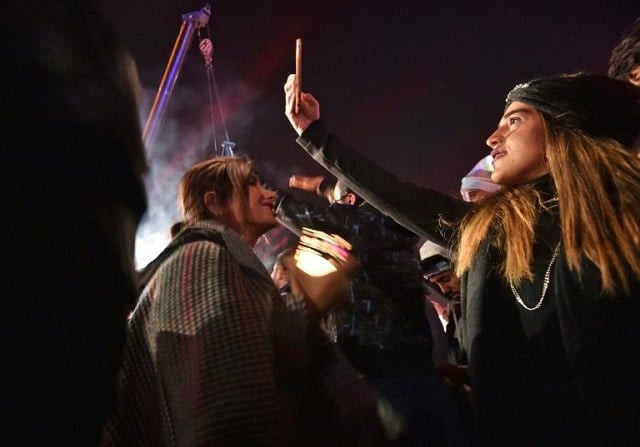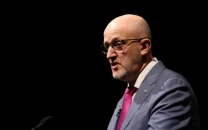Amid reform drive, some Saudis apprehensive over 'blistering' social change
'My problem is not with freedom. My problem is that it is freedom without restrictions and guidelines'

Even as the kingdom has forged ahead with the reforms, it has earned condemnation for a heavy-handed crackdown on dissidents including intellectuals, clerics and female activists. PHOTO: AFP/FILE
Crown Prince Mohammed bin Salman has introduced multiple economic and social innovations in the kingdom. Under the reform drive, women are allowed to take the wheel of cars after a decades-old driving ban was scrapped, and permitted to go to stadiums to watch sports and concerts.
Cinemas were reopened after many years of closures, noisy parties are permitted, and authorities turn a blind eye as shops remain open during prayers times – a grave offence in the past.
The metamorphosis has been widely welcomed in a country with a large youth population, and endorsed by clerics perceived to be pro-government. But some Saudis beg to differ, even if they do so quietly for fear of punishment.
"Loud musical parties, mixing of the sexes and easing restrictions on the female dress code, these were all unthinkable just a few years ago and are not permissible," said Ibrahim, a 55-year old Arabic teacher.
Restrictions and reforms: Saudi Arabia's treatment of women
"Of course, there was hidden moral degeneration in the country like all other countries. Now it has become public," the bearded father of five said, declining to use his full name due to the sensitivity of the issue.
He shook his head as two women walked past, their billowing traditional abaya cloaks worn unfastened and revealing skinny jeans underneath.
Along the boulevards of Riyadh and on restaurant terraces, men and women can now be seen socialising together, reflecting a quiet end to the ban on the mixing of the genders.
Foreign women are now, in theory, allowed to venture out without the black abaya and some pioneering Saudi women are daring to do the same.
"My problem is not with freedom. My problem is that it is freedom without restrictions and guidelines," Ibrahim said as he walked out of a mosque in central Riyadh.
"I asked religious scholars and they said we have to obey the Almighty, the Prophet and the rulers. Therefore I accept the reality as they — the rulers — are responsible for us," he added.
Given the reluctance to speak out against the kingdom's new vision, which is aimed at bringing in investment and diversifying the oil-reliant economy, it is hard to know the extent of the push back among ordinary people.
A government official, speaking on condition of anonymity because he is not allowed to comment publicly, defended the reforms, saying they "are needed by the Saudis to feel they are leading a normal life".
At the end of last year, Riyadh hosted the three-day MDL Beast, billed as the biggest party ever hosted by the conservative kingdom where a segment of the society has long opposed music shows.
Touted by some as Saudi Arabia's Woodstock, international DJs blasted dance music as thousands partied in the open air for three days, including women — many of them unveiled and sporting glittery face paint.
"I refuse to allow my children to go to such parties. They asked me and I refused," said one government employee, who declined to be named.
Saudi Arabia allows women to travel without male 'guardian' approval
"I am not sure if they went without telling me. Everything has become possible these days," said the father of four, including two girls.
"The problem is not with the change. The problem is that it has not happened gradually. It has taken place so suddenly," said the 47-year old man as he drank coffee at a cafe outside Riyadh.
Even among some young women, the transformation has been head-spinning.
"The openness happened in an unpleasant and shocking way and without preparation," said Manar Sultan, a 21-year-old student dressed in the traditional abaya.
"We have moved from the extreme right to the extreme left in the blink of an eye," she said at an amusement park in Riyadh.
Local media have published reports in the past few months of cars owned by women being set ablaze in several Saudi cities — some of the victims accused unidentified men of acting in protest over the lifting of the driving ban.



















COMMENTS
Comments are moderated and generally will be posted if they are on-topic and not abusive.
For more information, please see our Comments FAQ